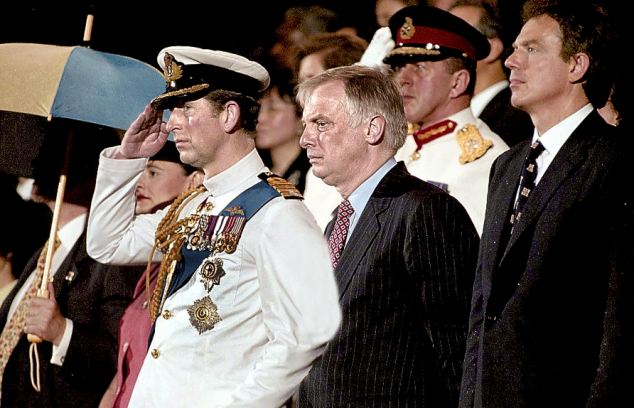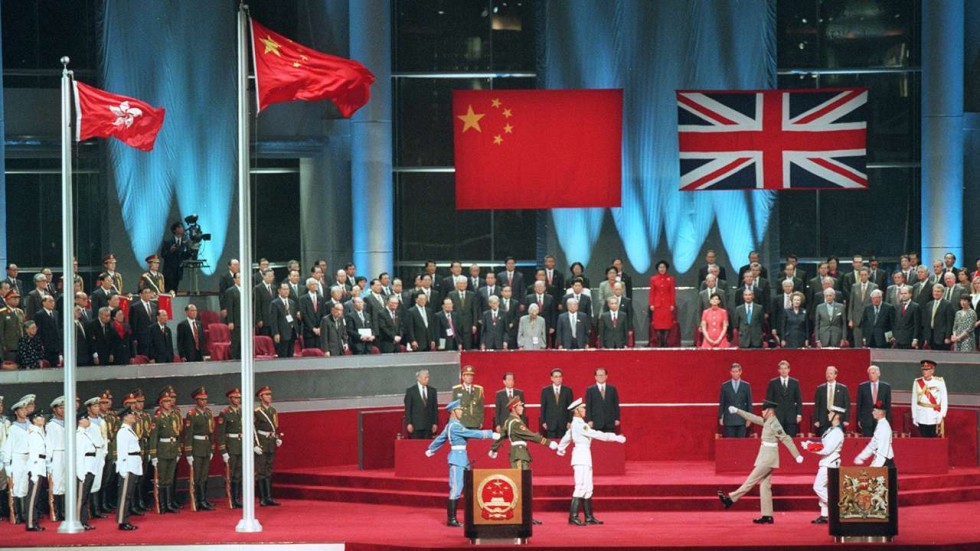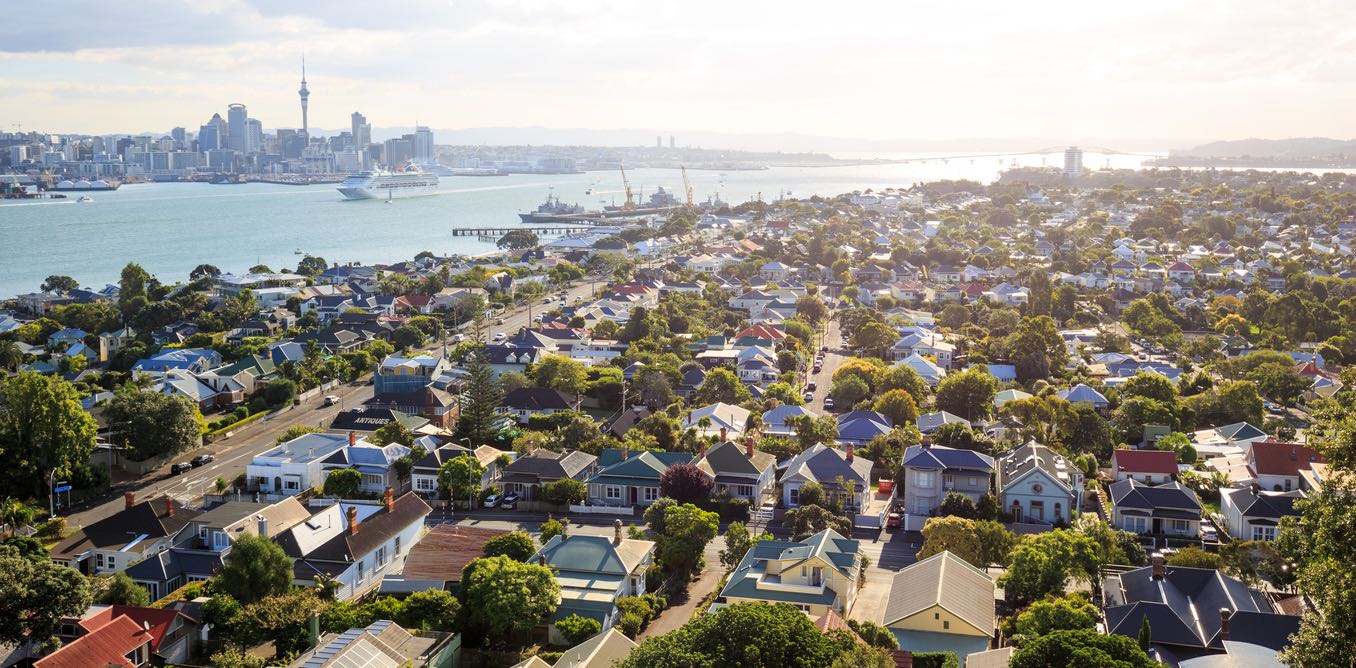Hong Kong is marking 20 years since the territory was handed from Britain to China, bringing an end to more than 150 years of colonial rule.
When the Chinese flag was raised over the city on 1 July, 1997, Hong Kong was not entirely integrated with the rest of mainland China. It maintained many institutions established during colonial rule – an independent judiciary, freedom of speech and a separate legislature – under a framework known as “one country, two systems”.
At the handover ceremony 20 years ago, Prince Charles and the then-prime minister Tony Blair travelled to the city to mark the transfer of sovereignty, something that struck the prince as deeply sad. In a diary he kept during his time in Hong Kong that was later leaked, he referred to the Chinese leadership as a “group of appalling old waxworks”.

According his account, then Chinese president Jiang Zemin “gave a kind of ‘propaganda’ speech, which was loudly cheered by the bussed in party faithful at the suitable moment in the text. At the end of this awful Soviet-style display we had to watch the Chinese soldiers goose step on to the stage”.
From our partners:
At the end of the ceremony, Prince Charles and the last governor of Hong Kong, Chris Patten, sailed away on the Royal Yacht Britannia, which was decommissioned later that year.
Why was Hong Kong handed to China in 1997?
Parts of Hong Kong were ceded to Britain in perpetuity as a prize in the wake of the Opium Wars, but the majority of its territory was leased to the UK in 1898, for a period of 99 years.
By the time discussions between the UK and China began over the future of Hong Kong in the two decades leading up to the end of Britain’s lease, the parts of the city ceded and those that were leased had been entirely integrated.
While the UK government proposed maintaining administration but transferring sovereignty to China, this idea and any other plan that did not cede full control to Beijing, was rejected.
This meant all of Hong Kong was handed to China at midnight on 1 July, 1997 with the promise that the city could maintain its unique way of life and separate government and laws for a period of 50 years.
Why is the anniversary important?
Hong Kong has seen rapid changes in the 20 years under Chinese rule. The city’s government, along with Chinese officials, have pushed for closer links with the mainland through massive infrastructure projects, changes in education and deeper business ties.
Like much of the world, Hong Kong has also become increasingly politically polarised, with nearly every event seen to harbour a hidden agenda for one side or the other. The two main camps are the pro-Beijing faction which toes the Communist party line and the pro-democracy side that favours greater autonomy for Hong Kong.
The 20th anniversary of the handover is no different, with pro-Beijing activists, many of them paid and bussed in, set to celebrate the occasion. At the same time, pro-democracy advocates plan to stage a protest march, a yearly act of defiance against the Chinese leadership.
Chinese president Xi Jinping also visited Hong Kong since coming to power in 2012, in order to mark the 20th anniversary of the handover and swear in the city’s new chief executive on 1 July.
Why does China want to exert control over Hong Kong?
Since the Communist party took power in China in 1949, it has consistently decried the “century of humiliation” that China was subjected to at the hands of western powers and Japan. This included enclaves ceded or leased to foreign countries, usually at the barrel of a gun.
The return of Hong Kong was a point of national pride, and former leader Deng Xiaoping famously threatened to take the city by force in discussions with Margaret Thatcher if a deal could not be reached for a peaceful transition.
Hong Kong was also a key conduit for Chinese businesses as the country slowly transitioned to a more market-based economy, and remains a vital financial hub.
What is the feeling among residents?
Compared to 20 years ago, the mood is decidedly more muted. The years immediately leading up to the handover saw a mix of fear and excitement, and mostly uncertainty with about 1% of residents emigrating every year.
But for the 20th anniversary, Hong Kong people generally know nothing will dramatically change in the near future. Beijing is firmly in control. The recently elected chief executive, the former deputy to the current leader, is China’s preferred candidate and beat out the more popular choice in a highly restricted ballot.
Mass pro-democracy protests in 2014 failed to secure any changes or promises from the government and daily problems such as skyrocketing real estate prices, deteriorating education standards and stagnant wages dominate daily discourse.
In the past few years, a small but vocal group of mostly young people have began advocating for Hong Kong to become independent, a movement that was non-existent 20 years ago.
What does the future hold?
China has offered no clarity on what will happen to Hong Kong beyond 2047, when the pledge that Hong Kong could keep its own government and laws expires.
Beijing is definitely pushing for closer integration, especially with increased transport links, but suggesting the abolition of Hong Kong’s autonomy remains something of a nuclear option.
The one factor that may force Beijing’s hand to publicly announce a plan is the economy. If the cloud of uncertainty remains, it could lead to a decline or complete collapse in property prices as buyers wonder what will happen if they purchase 30 year mortgages.
This article is written by Benjamin Haas in Hong Kong for The Guardian.


















